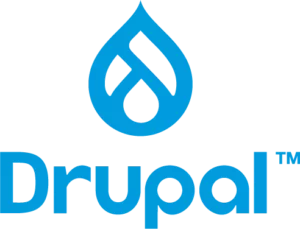In the bustling world of cloud infrastructure, Vultr shines as a beacon of seamless integration and limitless possibilities. With its dynamic compatibility with various platforms and tools, Vultr opens a gateway to boundless potential for businesses and developers alike. Whether you’re a budding startup seeking to elevate your hosting capabilities or an experienced developer aiming to streamline your workflows, Vultr stands ready to empower your journey.
Imagine a symphony of harmony as Vultr effortlessly integrates with your preferred platforms and tools. It becomes the foundation upon which your dreams are realized. From popular content management systems like WordPress, Joomla, Drupal, and Magento, to essential development and deployment tools like Git, Jenkins, Docker, and Kubernetes, it plays in perfect synchronization, providing you with a seamless hosting experience. Your websites, online stores, and applications bask in the reliability and scalability of Vultr’s robust infrastructure, allowing you to focus on what truly matters – creating extraordinary experiences for your users.
With Vultr as your partner, the possibilities are endless. It empowers startups to dream big and established enterprises to achieve greater heights. As the conductor of this orchestration, Vultr leads the way, providing seamless integration, limitless scalability, and a robust foundation for your digital ambitions. Embrace the symphony of Vultr’s integrations and unlock the true potential of your hosting experience.
Benefits of Vultr Integrations:
- Simplified Deployment: Vultr integrations streamline the process of deploying applications and services. With pre-built templates and one-click installations, users can quickly set up popular applications like WordPress, Joomla, or Magento without manual configuration. This saves time and effort, especially for users who are not experienced in server administration.
- Scalability and Flexibility: Vultr integrations enable users to scale their infrastructure based on demand. Integration with tools like Kubernetes, Terraform, and Ansible allows for automated provisioning and deployment of resources, making it simple to scale up or down as needed. This flexibility ensures that users can accommodate increased traffic or demands without extensive manual intervention.
- Developer-Friendly Environment: Vultr integrates with developer tools and platforms, as Docker and GitLab. This integration facilitates a seamless development workflow by providing easy deployment of containerized applications and version control systems. Developers can efficiently build, test, and deploy their applications, enhancing productivity and accelerating time to market.
- Monitoring and Analytics: Vultr integrations with monitoring tools like Prometheus and Grafana allow users to monitor server performance, track resource utilization, and analyze application metrics. This provides proactive monitoring, identifying potential issues or bottlenecks before they impact the performance or availability of the infrastructure. Real-time insights help optimize application performance and improve the overall user experience.
- Enhanced Security: Vultr integrates with security tools and services, like firewalls and DDoS protection. These integrations add an extra layer of security to the infrastructure, safeguarding applications and data from unauthorized access and mitigating the risk of DDoS attacks. Users can easily configure and manage security settings to ensure a secure hosting environment.
- Data Management and Backup: With integrations like Vultr Block Storage and Object Storage, users can store and manage their data efficiently. These integrations offer data redundancy, reliable storage, and simplified backup and restoration processes, ensuring data integrity and availability.
- Networking Capabilities: Vultr integrates with networking tools and services, allowing users to configure and manage networking components effectively. Aspects like load balancers and virtual private networks (VPNs) improve application performance, provide high availability, and enhance network security.
Integrations for Vultr:
1. Content Management Systems (CMS):
A. WordPress:

Vultr seamlessly integrates with WordPress, one of the most popular Content Management System (CMS) platforms. WordPress is widely used for creating websites, blogs, and online stores due to its user-friendly interface and extensive plugin ecosystem. With Vultr’s cloud infrastructure, users can easily deploy and manage their WordPress websites, taking advantage of the platform’s robust features and customizable themes.

Joomla, an open-source CMS known for its flexibility and extensibility is favored by users who require more advanced website functionalities and customization options. With Vultr’s reliable hosting environment, users can confidently host their Joomla-based websites and leverage the platform’s powerful content management capabilities.

Vultr is compatible with Drupal, a highly flexible and scalable CMS that is widely used for building complex and feature-rich websites. Drupal provides advanced content management, user management, and customization capabilities, making it a preferred choice for large-scale websites and web applications. With this hosting services, users can efficiently host and manage their Drupal sites, taking advantage of the platform’s powerful performance and security features.

Vultr’s cloud infrastructure is well-suited for hosting Magneto, a leading e-commerce platform used by businesses of all sizes. Magento offers robust e-commerce features, including product management, order processing, payment integration, and marketing tools. Users can leverage the scalability and performance capabilities of the cloud to ensure their Magento-powered online stores operate smoothly and efficiently, even during high-traffic periods.
2. Developer Tools and Platforms:
A. Git:
Vultr can be integrated with Git, a popular distributed version control system used by developers for managing source code. Developers can easily deploy Git repositories on Vultr servers and efficiently manage their codebase. This integration allows developers to take advantage of Git’s powerful features such as version control, branching, merging, and collaboration. They can easily push and pull code changes, track revisions, and coordinate with team members, ensuring a streamlined and organized development workflow. Vultr’s hosting services provide a reliable and secure environment for hosting Git repositories, ensuring that code repositories are readily accessible and protected.
B. Jenkins:
Vultr supports Jenkins, a widely used open-source continuous integration and continuous delivery (CI/CD) platform. Jenkins provides automation capabilities for building, testing, and deploying applications, enabling faster and more reliable software delivery. With Vultr, users can set up Jenkins instances on their servers to automate various stages of the software development lifecycle. Developers can configure Jenkins pipelines to automatically build, test, and deploy their applications based on defined triggers, such as code commits or scheduled intervals. Vultr’s support for Jenkins allows users to leverage the power of CI/CD, enabling efficient integration and delivery of software projects.
C. Docker:
By packaging all the necessary components together, Docker ensures that the application will run the same way regardless of the underlying environment. This eliminates the notorious “works on my machine” problem, where applications behave differently in various environments due to differences in dependencies, configurations, or underlying infrastructure. With Docker, developers can confidently build and test applications in one environment and seamlessly deploy them in any other environment, whether it’s a developer’s laptop, a staging server, or a production cluster.
Furthermore, Docker enables resource efficiency by leveraging containerization technology. Traditional virtualization methods require running multiple operating systems on a single physical server, resulting in significant resource overhead. In contrast, Docker containers share the host operating system, allowing for a more lightweight and efficient utilization of system resources. This means that more applications can be run on the same infrastructure, leading to improved resource utilization and cost savings.
D. Kubernetes:
Vultr’s support for Kubernetes empowers users to efficiently manage their containerized applications. By utilizing Kubernetes on Vultr’s infrastructure, users can leverage the platform’s capabilities for high availability and seamless scaling based on demand. Kubernetes simplifies the deployment and management of complex microservices architectures, making it an ideal choice for modern cloud-native applications that are built using a distributed and modular approach.
3. Control Panels:
A. cPanel:
Vultr seamlessly integrates with cPanel, a highly popular web hosting control panel renowned for its intuitive interface and comprehensive suite of tools. cPanel empowers users to effortlessly manage various aspects of their web hosting environment, such as websites, domains, email accounts, databases, and more. With Vultr’s integration with cPanel, users can efficiently perform a wide range of web hosting tasks through a user-friendly graphical interface. This streamlined experience enables them to effortlessly create and manage websites, set up and manage email accounts, configure DNS settings, monitor website statistics, and execute other essential administrative functions, ensuring a smooth and hassle-free hosting experience.
B. Plesk:
With Plesk integration, Vultr provides users with a user-friendly interface for managing websites, applications, and server settings. This integration encompasses a multitude of features, including website and domain management, seamless deployment of applications, enhanced security measures, and flexible server configuration options. Users can take advantage of Plesk’s intuitive interface to effortlessly handle their hosting environment, deploy and manage websites, configure server settings, monitor resource utilization, and access advanced functionalities that optimize website performance and strengthen security measures.
C. Webmin:
Vultr seamlessly integrates with Webmin, empowering users to effortlessly manage their servers. Through the integration with Webmin, users gain access to a comprehensive set of server management tools and functionalities. They can efficiently perform server management tasks, configure various services, set up user accounts, monitor system resources, and manage security settings. The intuitive Webmin interface provides a user-friendly environment where users can easily navigate and administer their servers. From configuring server services to managing firewall rules, setting up cron jobs, and performing essential system administration tasks, users can ensure optimal performance and security of their server environment with ease.
4. Monitoring and Analytics:
A. New Relic:
New Relic tracks essential metrics such as response times, error rates, throughput, and resource utilization, enabling users to have a comprehensive understanding of their application’s performance. With detailed performance analytics and reporting, users can easily identify bottlenecks, troubleshoot issues, and optimize the performance of their applications. The integration with New Relic equips users with the necessary tools to proactively monitor and enhance their server and application performance, ensuring a smooth and efficient experience for their end-users.
B. Datadog:
Datadog offers a suite of monitoring features, including real-time metrics, log management, and customizable dashboards. Users can collect and analyze server and application metrics, allowing them to track performance, identify trends, and troubleshoot issues efficiently. With the ability to set up alerts based on specific thresholds, users may receive notifications when certain metrics exceed or fall below desired levels, prompting proactive monitoring and timely response to potential problems. By leveraging integration between Vultr and Datadog, users can gain deeper insights into infrastructure’s health and performance, enabling them to optimize their operations effectively.
C. Grafana:
Grafana supports a wide range of data sources, allowing users to consolidate data from various systems and create informative visualizations. With its flexible and intuitive interface, users can monitor trends, track key performance indicators, and gain a comprehensive overview of their infrastructure’s status. By visualizing the collected metrics, users can identify patterns, detect anomalies, and make data-driven decisions to optimize the performance and efficiency of their infrastructure.
Use Cases for Vultr:
1. Web Hosting:

Vultr offers a wide range of server configurations, allowing users to select the resources that best suit their website’s requirements. From CPU and memory to storage and bandwidth, users can customize their server to meet the specific needs of their website, ensuring optimal performance and scalability.
Vultr’s cloud-based infrastructure ensures high availability and reliability for hosted websites. With multiple data centers located worldwide, users can choose the server location closest to their target audience, reducing latency and improving website loading speeds. Additionally, Vultr’s redundant network and automatic failover mechanisms help minimize downtime, ensuring continuous accessibility for website visitors.
2. Application Hosting:

Whether you’re running a web application, a mobile app backend, or a microservices architecture, Vultr offers the necessary web applications infrastructure and features to ensure smooth application hosting. With customizable server configurations, global network coverage, support for various technologies and programming languages, integration with containerization tools, user-friendly management interfaces, and strong security measures, it empowers developers and businesses to host and scale their applications with ease, prmising optimal performance, availability, and security.
3. Development and Testing Environments:

Developers can take benefit from Vultr’s cloud platform to create and test applications. With the ability to quickly provision virtual machines or containers, developers may set up development, staging, or testing environments efficiently. the flexible infrastructure allows developers to scale resources as needed and simulate real-world scenarios, ensuring the smooth development and testing of their applications.
4. High-Performance Computing (HPC):

Vultr’s high-performance cloud infrastructure is suitable for running computationally intensive workloads. Whether it’s scientific simulations, data analysis, or machine learning tasks, the powerful infrastructure can provide the necessary computing power and resources. Users can leverage its high-performance instances, optimized storage, and networking capabilities to accelerate their HPC workloads and achieve faster results.
5. Disaster Recovery and Backup:

Vultr can be utilized for disaster recovery and backup solutions. Users can replicate their data or applications to a different geographical region using Vultr’s global infrastructure. This redundancy ensures that data is protected and allows for quick recovery in case of any unforeseen events. With its robust backup options and disaster recovery capabilities, users can ensure the safety and availability of their critical data and applications
Conclusion:
Gone are the days of wrestling with the complexities of infrastructure management. With Vultr’s robust integrations seamlessly woven into the tapestry of their operations, businesses can dance with agility, effortlessly building, deploying, and managing their applications. Valuable resources and time are freed from the clutches of mundane tasks, allowing innovation to take flight and fuel the engine of growth.
Explore the cost effectiveness of various platforms here.
FAQs on Vultr Integrations and Uses:
- Does Vultr support load balancing?
Yes, Vultr offers load balancing services to distribute traffic across multiple servers, ensuring high availability and improved performance. Vultr Load Balancers are highly scalable and can handle large volumes of incoming requests. They support TCP, UDP, and HTTP(S) protocols, making them suitable for various types of applications.
- Can I automate Vultr services using an API?
Yes, Vultr provides a comprehensive API that allows you to automate the management of your servers, networks, and other resources. The Vultr API enables you to programmatically create, modify, and delete resources, as well as perform actions like server reboots, snapshots, and DNS management.
- Does Vultr offer backups and snapshots?
Vultr provides backup and snapshot features for data protection and disaster recovery. Its Backup allows you to create automatic backups of your servers, while Vultr Snapshots enable you to capture a full image of your server’s disk at a specific point in time. You can restore from backups or deploy new servers using snapshots as a base image.
- What security measures does Vultr have in place?
Vultr prioritizes the security of its infrastructure. They employ measures like firewalls, DDoS protection, and network isolation to safeguard your servers and data. Vultr also provides features like private networking and server hardening to enhance security and control access to your resources.
- Does Vultr offer customer support?
Yes, Vultr provides customer support via various channels. They offer a ticket-based system where you can submit inquiries and receive assistance from their support team. Vultr also maintains a comprehensive knowledge base with FAQs, tutorials, and documentation to help users with common issues and setup processes.



